If you have health and fitness goals, it’s very important to eat a healthy diet, to give your body the fuel it needs to perform well. It’s tempting to use supplements in place of nutritious food, but before reaching for the supplement pot, it’s always best to ensure that your diet is providing you with the nutrients needed for good health. However, using carefully chosen supplements can give you an additional boost, especially if you’re training hard or have increased nutrient demands. Ideally, supplements should be used alongside professional advice from a qualified nutritionist or healthcare provider, to make sure they’re right for your individual needs. This guide explores the most effective vitamins and supplements for supporting muscle growth and recovery, based on the latest scientific evidence.
Kerry Beeson BSc (Nut. Med), Nutritional Therapist
“As a nutritional therapist, I always say that no supplement can replace the foundation of a well-balanced, nutrient-rich diet. However, when used strategically, supplements can offer measurable benefits, particularly for those training at higher intensities. The key is choosing the right supplements for your individual goals and using them as part of a holistic protocol that also includes supporting diet, lifestyle, and exercise adjustments.
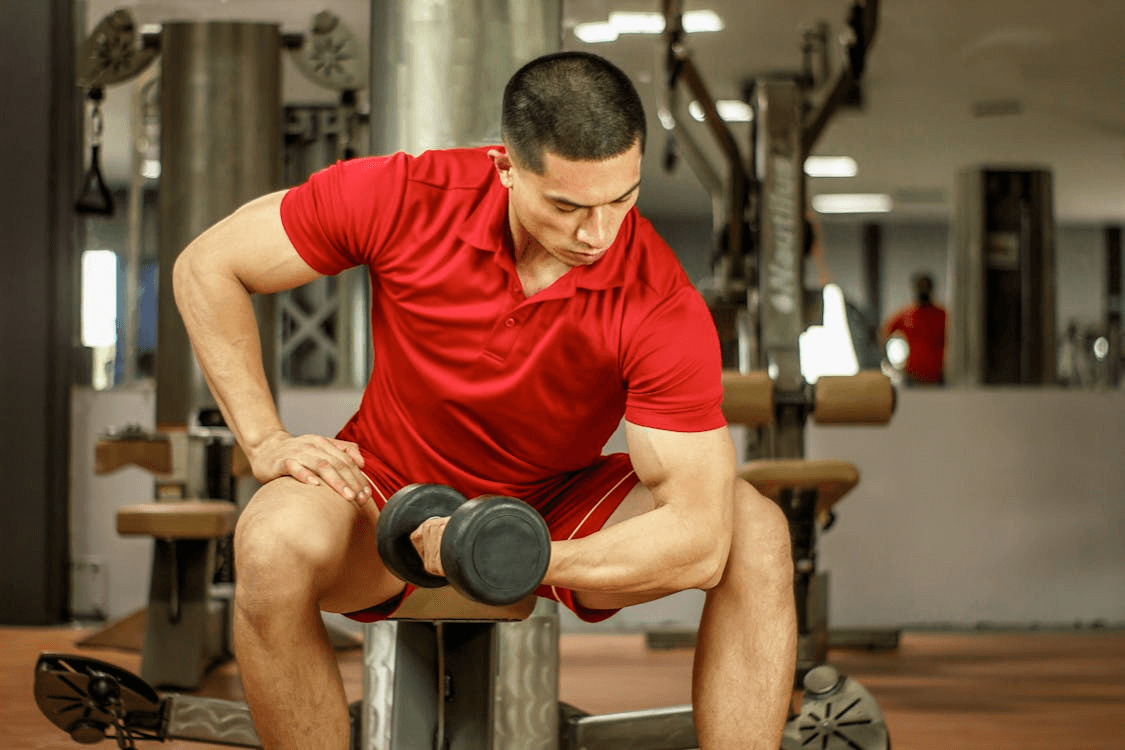
The Role of Vitamins in Muscle Growth and Recovery
Vitamins play a central role in how your body builds and maintains muscle (1). They regulate energy metabolism, support muscle protein synthesis, and help repair tissues after training. Antioxidant vitamins like C and E protect muscle cells from oxidative stress, while B vitamins help convert nutrients into usable energy. Deficiencies in any of these can slow recovery and limit your progress. To support consistent gains, vitamin intake should match your training intensity and goals. A healthy diet containing balanced portions of meat, poultry and fish, or vegetarian proteins like soya, nuts, seeds, pulses, and wholegrains, along with at least 5-7 portions of fruit and vegetables each day, should provide adequate levels of these vitamins. Check out our muscle-gain meal plan.
Let’s look at some key vitamins and minerals in more detail, and learn more about how they may help with muscle recovery and growth.
Vitamin D and muscle growth
Vitamin D is essential for muscle contraction and strength. It helps the body absorb calcium and supports neuromuscular function. Research shows that low vitamin D levels are linked to reduced muscle mass and increased fatigue, especially in athletes and older adults. Reviews of existing research found that supplementing vitamin D improved lower-limb strength in deficient individuals (2,3). It’s also been shown to support testosterone levels, which play a role in muscle development (4). It’s not always easy to obtain vitamin D from the diet as it’s only present in a small number of foods, such as oily fish, egg yolks, and offal.

Otherwise, our skin makes vitamin D when exposed to sunlight, but for many, especially in the UK, sunlight is in short supply, so supplementation may be necessary, especially in winter months (5). Be aware that it is possible to overdose on vitamin D if taken in very large doses; see your doctor or a healthcare professional for advice if you’re not sure whether vitamin D supplements are right for you.
Does Vitamin C help muscle growth and recovery?
Vitamin C helps your body produce collagen, a protein that supports muscle and connective tissue. It’s also a powerful antioxidant that reduces oxidative stress after intense workouts, which can speed up recovery and reduce soreness. In one study, vitamin C supplementation helped reduce muscle damage markers following resistance training (6). Plus, it supports immune function, vital for keeping you training consistently. You’ll find it in fruits and vegetables, especially broccoli, tomatoes, berries, and citrus fruits, but those training hard might need a boost in supplement form. There’s no upper limit for dosage and the recommended daily amount is around 70-90mg per day, which is roughly the amount of vitamin C in a large orange. High doses of around 3g per day have been used in trials (7); however, doses over 2g per day may be unnecessary and can also cause stomach upsets in sensitive individuals.
How does vitamin E help muscle recovery?
Vitamin E is a fat-soluble antioxidant that helps protect muscle cell membranes from oxidative stress during high-intensity or eccentric training. It works alongside vitamin C to reduce inflammation and support recovery by limiting oxidative damage (8).
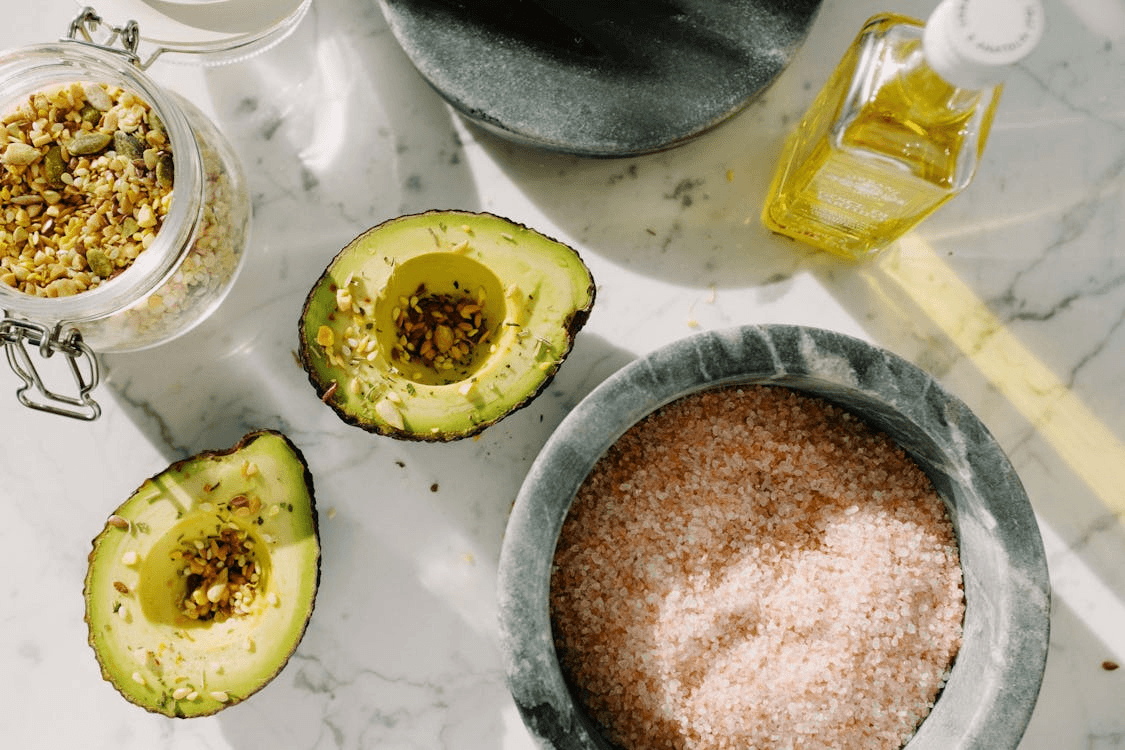
The UK daily recommended intake of vitamin E is conservative, at 4 mg for men and 3 mg for women (9). These basic requirements should be easily met via a healthy diet including foods containing healthy fats, such as oily fish, nuts, seeds, avocados, and olive oil. If you struggle to eat these sorts of foods then you can consider a supplement, or if you have a health condition, such as coeliac disease or Crohn’s disease, which may affect absorption.
Vitamin E is a fat-soluble vitamin,so is stored in body tissues, and it is possible to take too much. Doses up to 500mg per day are unlikely to cause any issues, but some research has indicated that even doses of 268mg may be too high to be beneficial, and may actually start to hinder rather than help recovery by negatively affecting how muscles respond and adapt to training (10,11).
If you’re considering a supplement, keep doses moderate and avoid taking them straight after exercise. It’s always best to speak to a healthcare professional about what’s right for you.
Vitamin B for Muscle Recovery
The B-complex vitamins - particularly B6, B12, and folate - play a vital role in muscle function and recovery.
B6 supports amino acid metabolism and muscle cell regeneration (12,13), and with folate and B12 helps produce the red blood cells which deliver oxygen and nutrients to muscles. Vitamin B12 (cyanocobalamin) is vital for growth and development but cannot be made by animals, including humans, so it must be obtained from the diet (14).
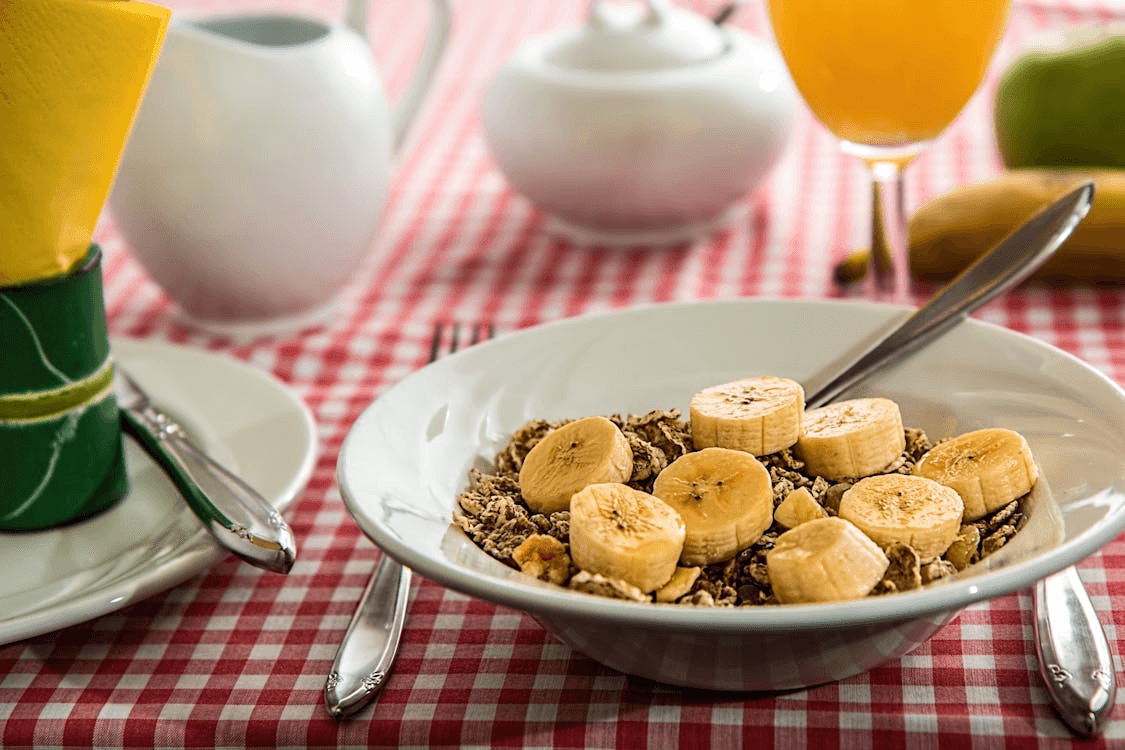
Good sources of vitamin B6 include poultry, bananas, wholegrains, and fortified cereals; folate is found in leafy greens, legumes, and citrus fruits; and vitamin B12 is mainly in animal products like meat, fish, eggs, and dairy. Vegans can get B12 from yeast extract and B12 fortified foods like nutritional yeast, though might need to consider taking a supplement. Deficiencies in these nutrients might lead to fatigue and impaired muscle growth and recovery, especially if you’re training hard. B vitamins tend to work synergistically together so it’s best to take a complex or multivitamin supplement which contains all the B vitamins rather than isolating one or two, unless a deficiency is identified. Speak to your doctor or a health professional for personalised advice.
Tom Seed - Fitness Expert
"Unfortunately there is no magic pill for building muscle. The key to this will be a high protein, well-balanced diet, good sleep alongside consistent training".
"Being smart with your supplementation can collectively optimise your muscle growth. My top 3 supplements to aid muscle growth would be:
1. Creatine
2. Omega 3
3. Whey Protein"
Other Supplements for Muscle Growth and Recovery
As well as key vitamins, if you’re strength training or have endurance goals, a few other well-researched supplements can complement your vitamin intake and support muscle growth more efficiently.
Creatine Supplementation for Muscle Gain and Repair
Creatine is found in all body cells. We need about 2-4g of creatine daily for our basic needs, and around half of this is made naturally in the body from the amino acids glycine, arginine, and methionine. Ensuring that the body has enough creatine can really help to support training and recovery outcomes.

We can source creatine in our diets from animal sources such as meat, poultry, and fish, but if we have increased activity goals, then it can be helpful to consider a supplement, especially if we don’t eat many creatine-rich food sources. It can be more challenging for vegetarians and vegans to obtain creatine, though they can eat foods containing the amino acid building blocks of creatine, such as dairy products, seeds, eggs, tofu, and pulses, to support the body in making its own.
Creatine is one of the most researched supplements, and it’s safe for use for most people. It is mostly stored in the muscle tissues, where it helps to facilitate the different energy requirements of both aerobic and anaerobic activities. It can also help to increase muscle mass and aid recovery from training and injury. (15) Creatine monohydrate is the most studied form of creatine supplement. Dosage will vary according to health goals - most studies use around 5g per day, though when you first start to take it, a ‘creatine loading’ phase to saturate your muscles is common, with doses of around 20g daily. Speak to a health professional about your individual needs.
Omega-3 Essential Fatty Acids for Muscle Growth and Recovery
Research suggests that omega-3 fatty acids can help with both muscle growth (16) and recovery (17).They also have known anti-inflammatory effects reducing exercise-induced inflammation and supporting protein synthesis.
Like vitamin D, omega-3 fatty acids are only found in a few dietary sources, including oily fish, chia seeds, flaxseeds, and walnuts. Oily fish is the best source, as it contains the most studied and bioavailable forms of omega-3s, eicosapentaenoic acid (EPA) and docosahexaenoic acid (DHA). Alpha-linolenic acid (ALA) is the omega-3 fatty acid found in plant-based sources - the body can convert this to EPA and DHA, but not in large amounts, and the process is unreliable. (18)
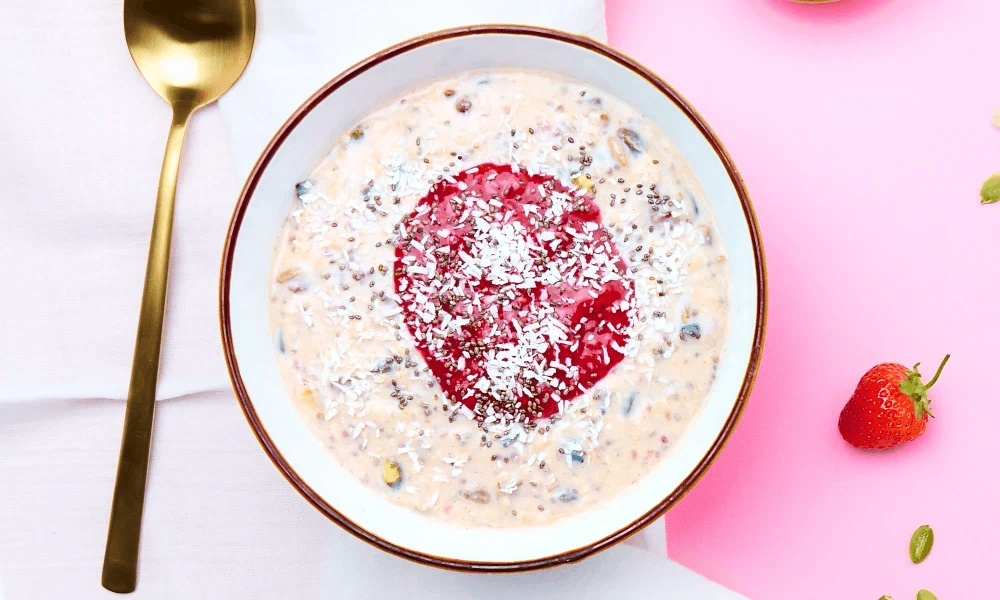
Aim for two to three servings of fatty fish weekly, eat walnuts as snacks and salad toppings, and add flax or chia seeds to breakfast cereals; however, if you’re training or find it difficult to eat enough of these foods, consider taking a supplement. In any health protocol for a client, I generally recommend an omega-3 for most people, because it can often be a challenge for the average person to source adequate amounts in the diet.
For healthy adults, the recommended daily intake of EPA and DHA is 250–500 mg (19,20). A typical 1,000 mg fish oil capsule provides about 300 mg of these omega-3s. Up to 3,000 mg of fish oil daily is generally considered safe. Athletes may benefit from higher intakes - around 1,000–2,000 mg/day - to support recovery and reduce inflammation (21,22).
Choose good quality supplements which are shelf stable, and keep them in a cool, dry place to keep the oils stable.
Why Is Protein Important for Muscle Building and Recovery?
Protein plays a crucial role in muscle building and recovery by supporting the repair and growth of muscle fibres damaged during resistance training. Protein provides essential amino acids - particularly leucine, isoleucine, and valine - that stimulate muscle protein synthesis (MPS), the process responsible for rebuilding muscle tissue [23, 24]. Adequate protein intake not only enhances gains in muscle mass and strength when combined with training but also supports immune function and overall recovery [25].
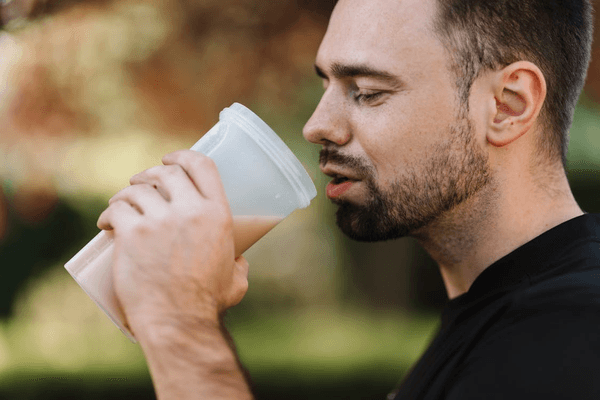
For individuals struggling to meet their protein needs through food alone, supplements such as whey protein - a fast-digesting, leucine-rich protein - can be a convenient and effective option, particularly post-workout. Casein, a slower-digesting protein, may be useful before sleep to support overnight muscle repair, while plant-based proteins like pea or soy can also be effective when consumed in sufficient amounts. A general guideline is to consume 20–40 grams of high-quality protein per serving, ideally spread across 3–5 meals per day, to help maintain a positive muscle protein balance and optimise recovery [26, 27].
Conclusion
This is not an exhaustive list of supplements which might help to support muscle growth and recovery, but hopefully this overview offers some insights regarding the role supplements might play in your fitness regime, alongside a supporting healthy diet. Used in a focused and informed manner, they can be useful tools to support your health goals and performance. If you do want to start using supplements, however, it’s best to do so with advice from a qualified health professional. If you have chronic health conditions, always consult your doctor before taking any supplements.
Check out these other related blogs on our website:
Diet and Nutrition Tips for Runners
How to Get Enough Protein as a Vegetarian
What are the Benefits of a High-Protein Diet
References:
1. Brancaccio M, Mennitti C, Cesaro A, Fimiani F, Vano M, Gargiulo B, Caiazza M, Amodio F, Coto I, D'Alicandro G, Mazzaccara C, Lombardo B, Pero R, Terracciano D, Limongelli G, Calabrò P, D'Argenio V, Frisso G, Scudiero O. 92022) The Biological Role of Vitamins in Athletes' Muscle, Heart and Microbiota. Int J Environ Res Public Health. 19(3):1249. doi: 10.3390/ijerph19031249. PMID: 35162272; PMCID: PMC8834970.
2. Beaudart C, Buckinx F, Rabenda V, Gillain S, Cavalier E, Slomian J, Petermans J, Reginster JY, Bruyère O. The effects of vitamin D on skeletal muscle strength, muscle mass, and muscle power: a systematic review and meta-analysis of randomized controlled trials. J Clin Endocrinol Metab. 2014 Nov;99(11):4336-45. doi: 10.1210/jc.2014-1742. Epub 2014 Jul 17. PMID: 25033068.
3. Han, Q., Xiang, M., An, N., Tan, Q., Shao, J., & Wang, Q. (2024). Effects of vitamin D3 supplementation on strength of lower and upper extremities in athletes: An updated systematic review and meta-analysis of randomized controlled trials. Frontiers in Nutrition, 11, 1381301. https://doi.org/10.3389/fnut.2024.1381301
4. Pilz S, Frisch S, Koertke H, Kuhn J, Dreier J, Obermayer-Pietsch B, Wehr E, Zittermann A. Effect of vitamin D supplementation on testosterone levels in men. Horm Metab Res. 2011 Mar;43(3):223-5. doi: 10.1055/s-0030-1269854. Epub 2010 Dec 10. PMID: 21154195.
5. NHS (2020, August 3). Vitamin D. Retrieved June 17, 2025, from https://www.nhs.uk/conditions/vitamins-and-minerals/vitamin-d/
6. Righi NC, Schuch FB, De Nardi AT, Pippi CM, de Almeida Righi G, Puntel GO, da Silva AMV, Signori LU. Effects of vitamin C on oxidative stress, inflammation, muscle soreness, and strength following acute exercise: meta-analyses of randomized clinical trials. Eur J Nutr. 2020 Oct;59(7):2827-2839. doi: 10.1007/s00394-020-02215-2. Epub 2020 Mar 11. PMID: 32162041.
7. . Bryer SC, Goldfarb AH. Effect of high dose vitamin C supplementation on muscle soreness, damage, function, and oxidative stress to eccentric exercise. Int J Sport Nutr Exerc Metab. 2006 Jun;16(3):270-80. doi: 10.1123/ijsnem.16.3.270. PMID: 16948483.
8. Taghiyar M, Darvishi L, Askari G, Feizi A, Hariri M, Mashhadi NS, Ghiasvand R. The effect of vitamin C and e supplementation on muscle damage and oxidative stress in female athletes: a clinical trial. Int J Prev Med. 2013 Apr;4(Suppl 1):S16-23. PMID: 23717764; PMCID: PMC3665020.
9. NHS (2020, August 3). Vitamin E. Retrieved June 18, 2025, from https://www.nhs.uk/conditions/vitamins-and-minerals/vitamin-e/
10. Paulsen G, Cumming KT, Holden G, Hallén J, Rønnestad BR, Sveen O, Skaug A, Paur I, Bastani NE, Østgaard HN, Buer C, Midttun M, Freuchen F, Wiig H, Ulseth ET, Garthe I, Blomhoff R, Benestad HB, Raastad T. Vitamin C and E supplementation hampers cellular adaptation to endurance training in humans: a double-blind, randomised, controlled trial. J Physiol. 2014 Apr 15;592(8):1887-901. doi: 10.1113/jphysiol.2013.267419. Epub 2014 Feb 3. PMID: 24492839; PMCID: PMC4001759.
11. de Lima KS, Schuch F, Righi NC, Neto LJR, Nunes GS, Puntel G, Chagas P, da Silva AMV, Signori LU. Vitamin E Does not Favor Recovery After Exercises: Systematic Review and Meta-analysis. Int J Sports Med. 2024 Jun;45(7):485-495. doi: 10.1055/a-2221-5688. Epub 2024 Feb 12. PMID: 38346687.
12. Thanutchaporn Kumrungsee, Kai Onishi, Takumi Komaru, Noriyuki Yanaka, Norihisa Kato, (2020), Vitamin B6 Regulates Muscle Satellite Cell Function: A Novel Possible Role of Vitamin B6 in Muscle Regeneration, Current Developments in Nutrition, 4 :(2) https://doi.org/10.1093/cdn/nzaa067_045.
13. Baltrusch S.j The Role of Neurotropic B Vitamins in Nerve Regeneration. Biomed Res Int. Jul 13;2021:9968228. doi: 10.1155/2021/9968228. PMID: 34337067; PMCID: PMC8294980.
14. Li P, Zhao Y, Liu Y, Zhao Y, Yan Y, Li S, Li S, Tong H. Cyanocobalamin promotes muscle development through the TGF-β signaling pathway. Food Funct. 2022 Dec 13;13(24):12721-12732. doi: 10.1039/d2fo00315e. PMID: 36408829.
15. Wax B, Kerksick CM, Jagim AR, Mayo JJ, Lyons BC, Kreider RB. Creatine for Exercise and Sports Performance, with Recovery Considerations for Healthy Populations. Nutrients. 2021 Jun 2;13(6):1915. doi: 10.3390/nu13061915. PMID: 34199588; PMCID: PMC8228369.
16. McGlory C, Calder PC, Nunes EA. The Influence of Omega-3 Fatty Acids on Skeletal Muscle Protein Turnover in Health, Disuse, and Disease. Front Nutr. 2019 Sep 6;6:144. doi: 10.3389/fnut.2019.00144. PMID: 31555658; PMCID: PMC6742725.
17. Huang YH, Chiu WC, Hsu YP, Lo YL, Wang YH. Effects of Omega-3 Fatty Acids on Muscle Mass, Muscle Strength and Muscle Performance among the Elderly: A Meta-Analysis. Nutrients. 2020 Dec 4;12(12):3739. doi: 10.3390/nu12123739. PMID: 33291698; PMCID: PMC7761957.
18. Sneh Punia, et al (2019), Omega 3-metabolism, absorption, bioavailability and health benefits–A review, PharmaNutrition,10,100162,ISSN 2213-4344,https://doi.org/10.1016/j.phanu.2019.100162. (https://www.sciencedirect.com/science/article/pii/S221343441930088X)
19. EFSA Panel on Dietetic Products, Nutrition and Allergies (NDA). (2012). Scientific opinion on the tolerable upper intake level of eicosapentaenoic acid (EPA), docosahexaenoic acid (DHA), and docosapentaenoic acid (DPA). EFSA Journal, 10(7), 2815. https://doi.org/10.2903/j.efsa.2012.2815
20. U.S. Food and Drug Administration. (2019). GRAS Notice Inventory – GRN No. 000242. Retrieved from https://www.fda.gov/food/generally-recognized-safe-gras/gras-notice-inventory
21. Mickleborough, T. D. (2013). Omega-3 polyunsaturated fatty acids in physical performance optimization. International Journal of Sport Nutrition and Exercise Metabolism, 23(1), 83–96. https://doi.org/10.1123/ijsnem.23.1.83
22. Philpott, J. D., Donnelly, C., & Ismail, I. (2018). Omega-3 polyunsaturated fatty acid supplementation for optimizing skeletal muscle function and recovery: A review of the literature. Journal of the International Society of Sports Nutrition, 15(1), 31. https://doi.org/10.1186/s12970-018-0233-4
23. Wu, G. (2016). Amino acids: metabolism, functions, and nutrition. Amino Acids, 48(1), 1–20.
24. Morton, R. W., et al. (2015). Protein intake to support muscle hypertrophy and strength: a meta-analysis of randomized controlled trials. The American Journal of Clinical Nutrition, 103(3), 687–695.
25. Phillips, S. M., et al. (2016). Dietary protein for athletes: From requirements to metabolic advantage. Applied Physiology, Nutrition, and Metabolism, 41(5), 565–572.
26. Moore, D. R., et al. (2009). Ingested protein dose response of muscle and albumin protein synthesis after resistance exercise in young men. The American Journal of Clinical Nutrition, 89(1), 161–168.
27. Jäger, R., Kerksick, C. M., Campbell, B. I., et al. (2017). International society of sports nutrition position stand: protein and exercise. Journal of the International Society of Sports Nutrition, 14, 20. https://doi.org/10.1186/s12970-017-0177-8




